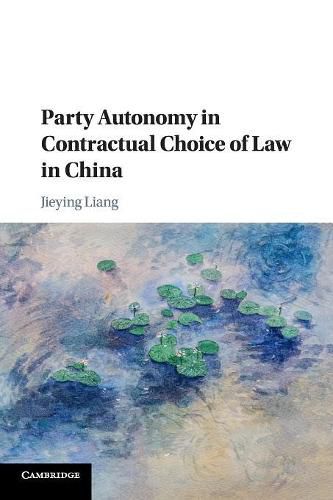Readings Newsletter
Become a Readings Member to make your shopping experience even easier.
Sign in or sign up for free!
You’re not far away from qualifying for FREE standard shipping within Australia
You’ve qualified for FREE standard shipping within Australia
The cart is loading…






The principle of party autonomy in contractual choice of law is widely recognised in the law of most jurisdictions. It has been more than thirty years since party autonomy was first accepted in Chinese private international law. However, the legal rules provided in legislation and judicial interpretations concerning the application of the party autonomy principle are abstract and open-ended. Without a critical understanding of the party autonomy principle and appropriate interpretations of the relevant legal rules, judges have not exercised their discretionary power appropriately. The party autonomy principle has been applied in a way that undermines its very purpose, that is, to protect the legitimate expectations of the parties and promote the predictability of outcomes in transnational commercial litigation. Jieying Liang addresses the question of how, when, and with what limitations, parties’ choice of law clauses in an international commercial contract should be enforced by Chinese courts.
$9.00 standard shipping within Australia
FREE standard shipping within Australia for orders over $100.00
Express & International shipping calculated at checkout
The principle of party autonomy in contractual choice of law is widely recognised in the law of most jurisdictions. It has been more than thirty years since party autonomy was first accepted in Chinese private international law. However, the legal rules provided in legislation and judicial interpretations concerning the application of the party autonomy principle are abstract and open-ended. Without a critical understanding of the party autonomy principle and appropriate interpretations of the relevant legal rules, judges have not exercised their discretionary power appropriately. The party autonomy principle has been applied in a way that undermines its very purpose, that is, to protect the legitimate expectations of the parties and promote the predictability of outcomes in transnational commercial litigation. Jieying Liang addresses the question of how, when, and with what limitations, parties’ choice of law clauses in an international commercial contract should be enforced by Chinese courts.